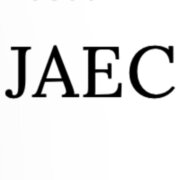Best E-commerce & Internet Law Lawyers in Luxembourg
Share your needs with us, get contacted by law firms.
Free. Takes 2 min.
Or refine your search by selecting a city:
List of the best lawyers in Luxembourg
About E-commerce & Internet Law in Luxembourg
Luxembourg is a prominent player in the European e-commerce sector, boasting a thriving digital economy. Its strategic location, robust legal framework, and advanced technological infrastructure make it an attractive base for online businesses. E-commerce & Internet Law in Luxembourg encompasses a wide array of legal areas, including data protection, consumer rights, electronic contracts, intellectual property, and online advertising. The country actively complies with EU regulations to ensure consumer protection and data privacy, reinforcing its status as a secure environment for e-commerce activities.
Why You May Need a Lawyer
The complexity of E-commerce & Internet Law necessitates professional legal assistance in various situations, such as:
- Starting an online business and needing guidance on legal requirements and compliance.
- Drafting and reviewing terms and conditions, privacy policies, and user agreements.
- Handling disputes related to intellectual property violations or online transactions.
- Ensuring compliance with data protection regulations, including GDPR.
- Addressing cross-border trade issues that impact your e-commerce enterprise.
- Navigating advertising and marketing laws to ensure adherence to regulatory standards.
Local Laws Overview
Luxembourg's e-commerce and internet regulations are inherently linked to the European Union's legal framework. Key aspects include:
- GDPR compliance: Safeguarding personal data is paramount, with businesses required to comply with stringent data protection measures.
- Consumer Protection: Regulations ensure transparent transactions, addressing unfair commercial practices and safeguarding consumer rights.
- Electronic Contracts: Laws recognize the validity of electronic contracts, supporting the establishment of legal online agreements.
- Intellectual Property: Ensures the protection of copyrights, trademarks, and patents in the digital sphere.
- Liability for Online Intermediaries: Establishes the responsibilities of online platforms in moderating user-generated content.
Frequently Asked Questions
1. What are the legal requirements to start an e-commerce business in Luxembourg?
Starting an e-commerce business requires registration with the Luxembourg Business Registers, obtaining necessary permits, and ensuring compliance with consumer protection and data privacy laws.
2. How does the GDPR impact my online business?
The GDPR mandates strict data protection protocols, requiring businesses to obtain user consent for data processing, implement security measures, and grant users the right to access their data.
3. Are electronic signatures legally binding in Luxembourg?
Yes, electronic signatures are legally recognized and enforceable under Luxembourg law, provided they meet specific technical standards set by EU regulations.
4. How can I protect my intellectual property online?
IP protection involves registering trademarks, copyrights, or patents where applicable, and actively monitoring for potential infringements.
5. What are the rules governing online advertising in Luxembourg?
Online advertising must comply with consumer protection laws, ensuring transparency, truthfulness, and fairness of content. Adherence to GDPR for targeted advertising is also crucial.
6. How should my website comply with cookie regulations?
Websites must inform users about the use of cookies, provide clear consent mechanisms, and offer a comprehensive cookie policy aligned with EU directives.
7. What recourse do consumers have for disputes in e-commerce transactions?
Consumers can seek resolution through dispute settlement bodies, lodge complaints with consumer protection agencies, or pursue legal action if necessary.
8. Are there specific laws for cross-border e-commerce within the EU?
EU regulations facilitate cross-border e-commerce by harmonizing rules, although businesses must still consider varying local enforcement and consumer rights laws.
9. How should data breaches be handled according to Luxembourg law?
Data breaches must be reported to the National Commission for Data Protection within 72 hours, and businesses must notify affected individuals when there's significant risk.
10. What role does the Règlement Général de la Protection des Données (RGPD) play?
The RGPD, or GDPR in English, is foundational for data protection, emphasizing user consent, data minimization, and data subject rights across EU member states, including Luxembourg.
Additional Resources
For more information, you may find the following resources helpful:
- National Commission for Data Protection (CNPD): For guidelines on data protection compliance.
- Luxembourg Chamber of Commerce: Offers resources and support for e-commerce businesses.
- Ministry of the Economy of Luxembourg: Provides insights into the economic landscape for digital businesses.
Next Steps
If you require legal assistance in E-commerce & Internet Law, consider the following steps:
- Consult with a specialized lawyer with expertise in e-commerce and internet law to address your specific needs.
- Conduct thorough research to identify law firms or legal advisors in Luxembourg well-versed in the nuances of your industry.
- Prepare detailed documentation and background information relevant to your legal issue prior to consultations.
- Stay updated on the latest developments in e-commerce regulations to maintain compliance and adapt to changes in legislation.
Lawzana helps you find the best lawyers and law firms in Luxembourg through a curated and pre-screened list of qualified legal professionals. Our platform offers rankings and detailed profiles of attorneys and law firms, allowing you to compare based on practice areas, including E-commerce & Internet Law, experience, and client feedback.
Each profile includes a description of the firm's areas of practice, client reviews, team members and partners, year of establishment, spoken languages, office locations, contact information, social media presence, and any published articles or resources. Most firms on our platform speak English and are experienced in both local and international legal matters.
Get a quote from top-rated law firms in Luxembourg — quickly, securely, and without unnecessary hassle.
Disclaimer:
The information provided on this page is for general informational purposes only and does not constitute legal advice. While we strive to ensure the accuracy and relevance of the content, legal information may change over time, and interpretations of the law can vary. You should always consult with a qualified legal professional for advice specific to your situation.
We disclaim all liability for actions taken or not taken based on the content of this page. If you believe any information is incorrect or outdated, please contact us, and we will review and update it where appropriate.
Browse e-commerce & internet law law firms by city in Luxembourg
Refine your search by selecting a city.














